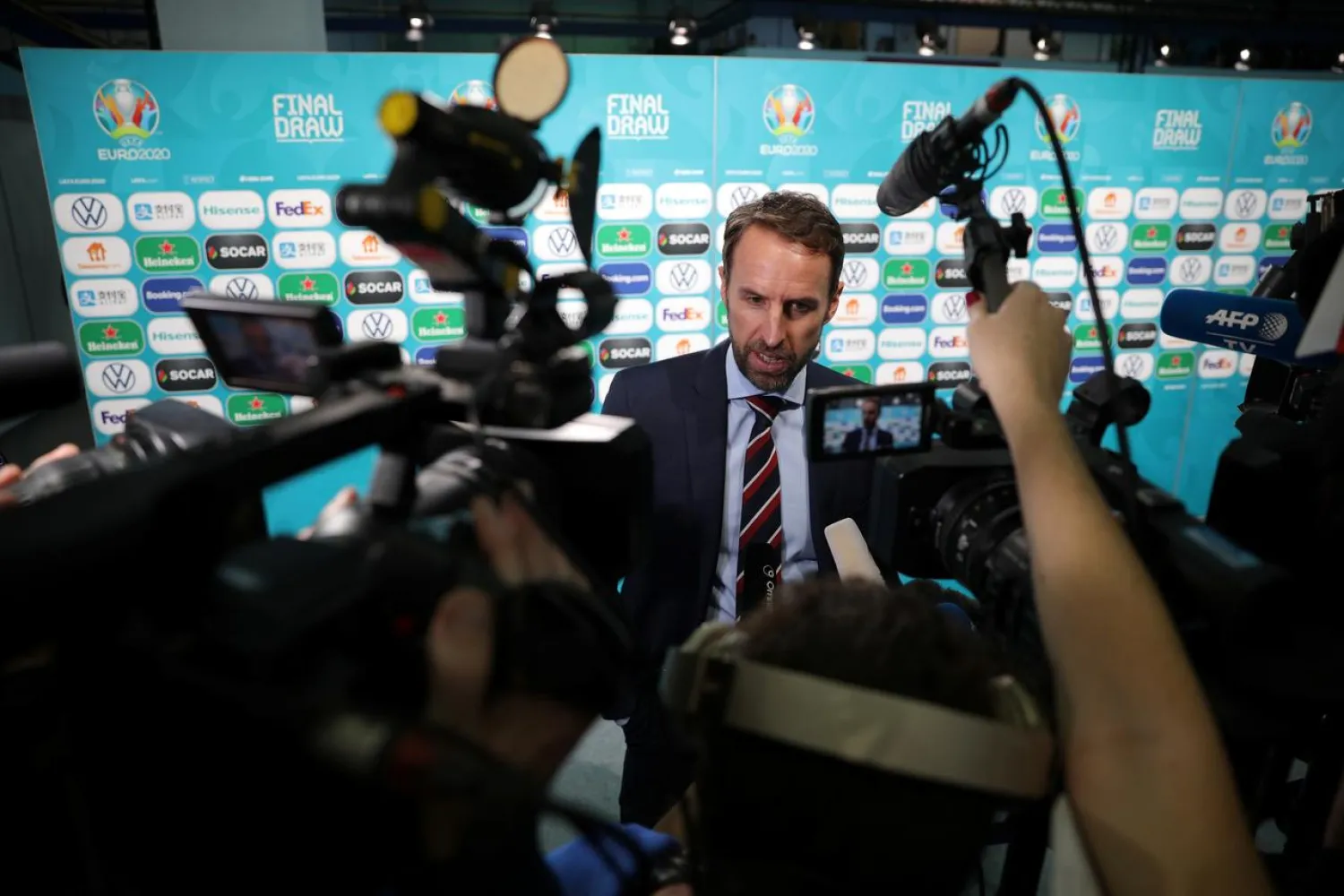To these eyes, at least, it was not in a stadium that the saga of the England football team in the modern era reached its lowest point. It was not Kevin Keegan resigning in the Wembley washroom in 2000, or Steve McClaren watching helplessly from beneath an umbrella as Croatia denied his team a place in the Euro 2008 finals, or the stumbling capitulation to Iceland in Nice three years ago under Roy Hodgson. It came one afternoon in the middle of Fabio Capello’s four-year reign, in the very different surroundings of a Knightsbridge shopping street.
At the behest of the Football Association’s PR department, the notoriously aloof Capello had invited a large group of senior sports writers from national newspapers to lunch. This was a rare event, with the additional lure of the location: San Lorenzo, the famous Italian restaurant favored by Princess Diana, Jack Nicholson, Joan Collins and other celebs whose presence ensured the entrance was habitually patrolled by paparazzi.
The lunch was held under Chatham House rules, meaning nothing said would be repeated outside. The food was good and a couple of hours passed pleasantly enough. But no secrets were divulged. Capello said nothing about his tactics and gave no details of Wayne Rooney’s pre-match preparations. The Italian did a decent impersonation of geniality but seemed less than engaged. He left as soon as it was polite to do so, in the company of his assistant, Franco Baldini, one of the gaggle of compatriots hired to help him turn England from Sven-Göran Eriksson’s perennial quarter-finalists into champions.
A couple of minutes later, on leaving the restaurant and turning down Beauchamp Place, a street whose parking bays are generally filled with the Lamborghinis and Bentleys of high net worth individuals, and where the estate agents offer properties priced in the tens of millions, it was possible to observe Capello and Baldini standing side by side in animated conversation. They were examining, with great concentration, the window display of an upmarket jewelry shop, presumably thinking about how to spend some of the dosh lavished on them by the FA.
From the football perspective, it was a sight of pure decadence: a symbolic image of the way the game had changed and of the belief that money was the answer to everything. As we were to learn, paying a manager £6m a year and giving him carte blanche to hire his mates was a guarantee of nothing.
Capello made his abrupt exit in 2012, leaving behind a squad generally derided as overpaid and under-performing, just before the London Olympics persuaded us that we lived in a country where social tolerance and inclusivity, artistic creativity and sporting excellence continued to hold sway. Seven years later it is the England football team who appear to hold a beacon of enlightenment above the turmoil of a nation mired in public squalor, riven by seemingly insoluble arguments over the most basic of values and in danger of blowing apart under the strain of its own anger and self-importance.
Gareth Southgate’s achievement has been to apply not just his years of experience in football but also his natural qualities of decency, modesty, diligence and willingness to learn. In the process he has made the England team actually likable perhaps for the first time since Joe Mercer’s fondly remembered spell as caretaker between the sacking of Alf Ramsey and the arrival of Don Revie 45 years ago.
Not that you would have thought it as his players struggled for coherence and composure in the opening half-hour of their match against Kosovo last month. From front to back they were slack, sloppy and slovenly, passes misplaced or mistimed in a way that would have invited stronger opponents to take immediate advantage. This was an England familiar through the generations, seemingly entranced by an assumption of their own excellence and there for the taking.
In defense, in particular, it was an England reminding us the financial freedom of Premier League clubs to import a Virgil van Dijk or a N’Golo Kanté whenever necessary has suffocated the development of native-born specialists in the defensive arts. The cage football of south London may have helped produce a generation of delightfully expressive attackers but it has failed to provide Southgate with a rearguard of international quality.
He now has several months to observe events and wonder whether Joe Gomez or Fikayo Tomori will surpass John Stones and Tyrone Mings in the contest to provide Harry Maguire – himself fallible – with a reliable partner, whether the prodigious gifts of Trent Alexander-Arnold will outweigh his occasional moments of defensive negligence, and whether Declan Rice and Mason Mount can mature fast enough to justify their inclusion in his starting XI. At least Southgate can afford to be patient with Jadon Sancho and Callum Hudson-Odoi; neither is remotely the finished article but it was a wise decision to bring them into the squad and give them the feeling of belonging to the group.
Scoring seven against Montenegro and four against Kosovo is nothing to shout about but after the manager had guided them through the Sterling/Gomez altercation with his familiar blend of openness and realism, they continued to show an unselfish pleasure in each other’s achievements, relishing the sense of common purpose that is another of his achievements. They, too, are enjoying themselves.
When Southgate took the job three years ago, he was paid less than a third of Capello’s money. Since reaching the semi-finals of the 2018 World Cup, his salary has risen to £3m a year. Still a great deal of money, of course, but at least it no longer feels like filthy lucre.
The Guardian Sport









